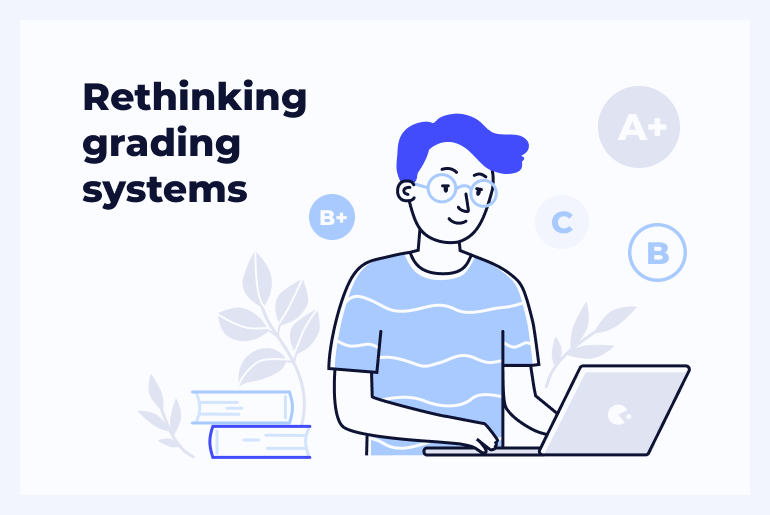What does it really take to detect contract cheating if the text turns to be 100% original and goes unnoticed by plagiarism checkers? Apart from AI-driven assistants like Emma (and thoroughly studying the individual’s writing style), who or what else can tackle these issues?
We’ve connected with Pauli Alin, Assistant Professor of Technology Management at Utah Valley University, to find out how contract cheating instances are now being discovered and addressed.
It seems like the trickiest part so far has been to present a reliable proof without discrediting students’ reputation and efforts. Here’s what we’ve discovered.
Unicheck: How can educators identify the students who’ve purchased assignments from academic writing services?
Pauli: I don’t think you can generalize this across the entire Utah Valley university or other universities. But the research is saying contract cheating is prevalent.
The main problem from an instructor’s viewpoint has been (and still is): it’s so hard to reliably detect contract cheating. It doesn’t show up. It’s not plagiarized. It’s not copy-pasted from the internet.
You can ask your students if they completed assignments on their own and could go over the details. But that’s not a good strategy because you often can’t get any useful data off of that conversation to put the things forward. That’s why instructors turn a blind eye and say, “Well, it’s not showing up as plagiarism. I don’t have proof. I’ll just give a full grade and move on.”
It’s so frustrating. It takes hours to deal with one student who’s contract cheating.
So, if you turn a blind eye, no one can accuse you of anything. You’re following the process. It’s not plagiarizing. You don’t have proof, and when you don’t have proof, you can’t really do anything. What you end up with is students who cheat. And that’s wrong.
That’s when I started developing my own things. It has to be quick, easy, efficient documentation and it’s working for me individually now.
Unicheck: So, what can serve as the reliable evidence of contract cheating? What could it be?
Pauli: You need two pieces of evidence. We’re talking about writing, but this could apply to other problems too. At least one piece of writing from the student that you can be certain that it’s actually written on one’s own and then anything they submit. Next, you compare the two to find out how these assignments differ.
You have to be able to substantiate the first suspicion. You can’t just start inviting students at random to see you. If you don’t have the sample, what you would need to do is invite a lot of people over to cover a legal basis. But it’s not doable anymore. It takes up all your time.
So, have two samples, compare them, give it a zero because the two results are too different, and ask the student to replicate the main points of it in the next 10 minutes. They usually don’t produce anything that’s clear. Then I put that forward to the office of student conduct telling what happened. I determined that this was cheating in this assignment. I give a warning, and this is the evidence based on which I make the determination. I’ve never had any problems when I do that. And it’s pretty solid. If the student wants to contest my decision, he/she’s always free to do that, providing the proof of innocence.
Unicheck: What could motivate educators to be involved in solving these issues and carrying out the investigation?
Pauli: Most instructors hate dealing with it. And again, you don’t have the evidence, you don’t have to deal with it, you just let it slip.
Having a really software-driven process can help them reduce contract cheating attempts. Submissions come in on Canvas and some of them are color coded orange or red, signaling the instructor to check them up. You take a closer look. And then what would need to happen is a couple of mouse clicks, ideally. You’ve determined there’s a case here and transferred it to the university office of student conduct. This would be the easiest way.
There would have to be somebody else who’s taking over the process at that point and does what I would do, invite the student over. I believe this is doable, but universities have to change the approach a little bit.
The student conduct office would take care of the process at that point. They would send the email to the student, administer the test, and ask the instructor to make the final determination.
Unicheck: You’ve mentioned some organizational changes that should be made inside academic institutions. And what if essay-writing companies were banned globally, would contract cheating cease to exist?
Pauli: It would help in the sense that it would give you, the instructor, and the university more legal power to go after these. But I don’t think it would completely eradicate it.
Essay-writing companies are marketing themselves like academic consultants, telling students not to use ready-made papers to submit as their own works. They’re doing these legal loopholes already. So, it may be too difficult to outlaw them. This is my prediction.
Unicheck: From your fair perspective, what are the benefits of using a plagiarism checker to prevent cheating? What are the areas for improvement?
Pauli: I’ve used Unicheck for quite a while, but haven’t tried Emma yet. The plagiarism detector works really well. Every semester, I catch a number of students with it. I love it for the same reasons. It’s quick. It’s fast. You can do screenshots. That doesn’t really detect contract cheating because it’s not plagiarized; it’s original. It’s just not created by the student. I believe all the cheating prevention tools should be embedded in the software. What I’m currently doing manually, could be built into the software.
Unicheck: Have you ever noticed that some faculty members are unwilling to utilize the software?
Pauli: You can’t really mandate the faculty to use anything, as their protections are strong in the US. Most of us use the software, but there are some faculty who don’t use Canvas, which sounds unbelievable to me. I don’t think faculty are against using technology. They’re more likely to be against using bad technology, which is hard to use, hard to learn, having poor user interface and user experience. We are all like that. We don’t want to use anything that has a bad user experience.
So, the trick would be to make it super simple. I wouldn’t rely too much on educating the users. We have to go through a bunch of video training every year, so you can learn to use the software, which is horrible.
Let’s take Apple products. They don’t come with that user manual at all. Why not? Because they’re so easy to use. They’re so intuitive. The same goes about Twitter or Uber.
The software should be so intuitive to the user that there are no manuals needed. This is kind of my design philosophy.
Unicheck: You’ve said that you haven’t tested Emma yet, but we’d like to know what you’re expecting from the AI-powered assistants like Emma? Do you really find them reliable?
Pauli: I’m a big believer in it. Even if such tools are 90% accurate, that’s good enough. You’re not aiming for a 100% proof, anyway. You don’t need a 100% proof to give the student a zero in an assignment. If you have a reasonable belief that it was cheating, you can do it. I’m not concerned about that part. I think you should be able to easily establish the fact of cheating. Here are the false positives, here are the false negatives. I’m not concerned about the software unless it’s really bad.
Hardly any instructor really cares what’s the underlying algorithm in there. It doesn’t have to be perfect, but if it gives you some number based on something that’s real data, you can rely on it when grading papers, which is a real pain reliever.
Unicheck: You’ve established your own method of preventing contract cheating, a Doping Test. What is it about? Has it proved effective?
Pauli: I gave it a name called Doping Test because I think it’s catchy and based on comparing samples, like blood samples. One is a written assignment that I saw a student was writing in my class and sample two is what the student submitted via Canvas. If I detect there’s something odd about these two, I’ll invite the student over to do a little bit more rigorous testing, telling about the main points outlined in the submission.
If he/she remembers a sufficient number of items even though I still think they did cheat, I’ll let it go for reasons I mentioned above. For me, it works now. But to really scale this globally, the software component has to be in place. So, people like you have to be involved. That’s how you scale things.
PS: If you enjoyed this interview, follow this link for more useful discussions about e-learning in the social distancing times.




